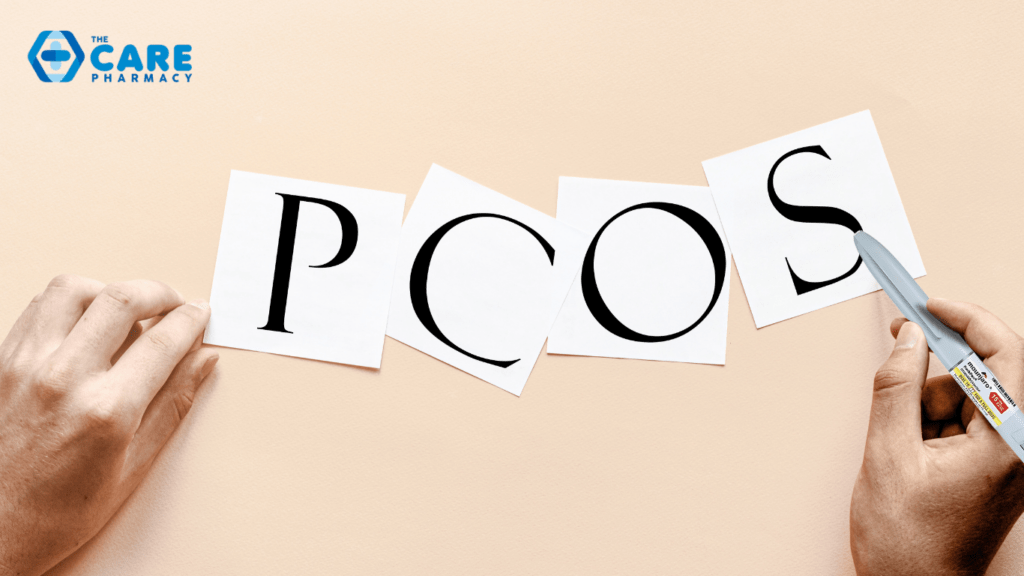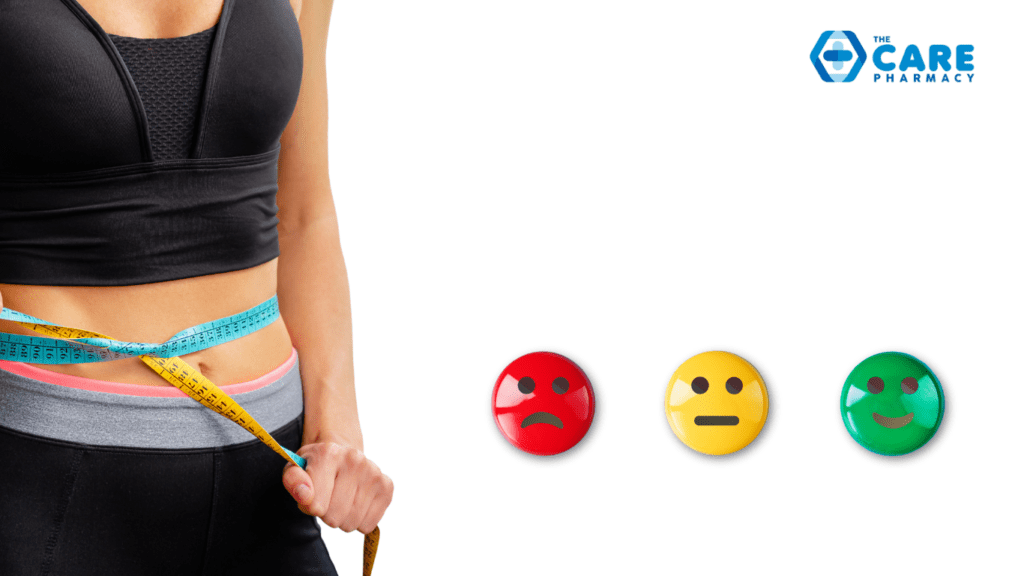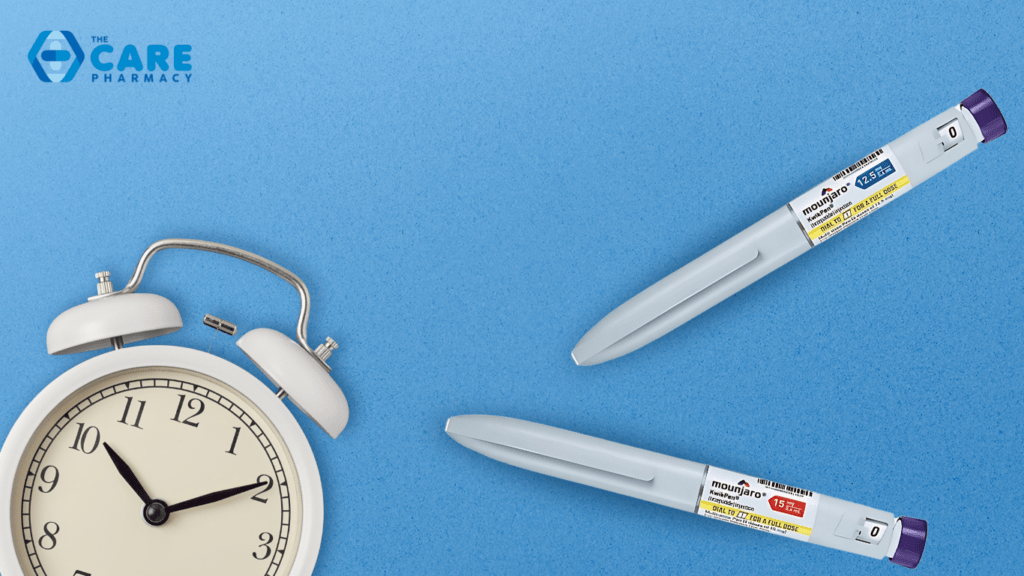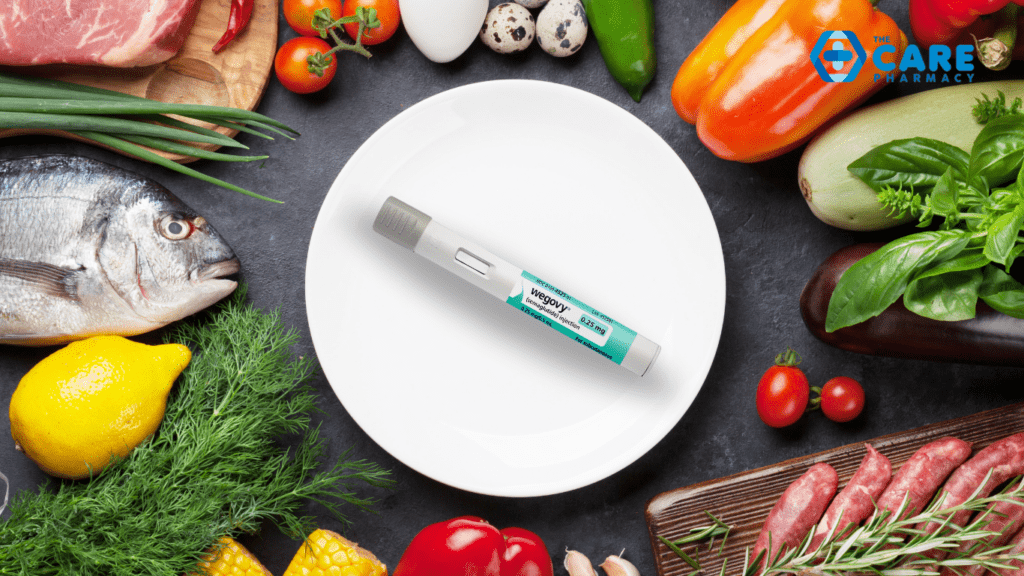Have you felt tired, light-headed, or experienced muscle cramps while taking Mounjaro? These symptoms could be due to dehydration or an electrolyte imbalance—a common issue for individuals on this medication. But why does this happen, and how can you effectively address it?
Hydration isn’t just about drinking more water. It’s about replenishing the essential electrolytes that regulate your body’s functions. In this guide, we’ll dive into why hydration is particularly important when you’re on Mounjaro and how you can naturally maintain a healthy electrolyte balance to support your overall well-being.
What are Electrolytes, and why do they matter?
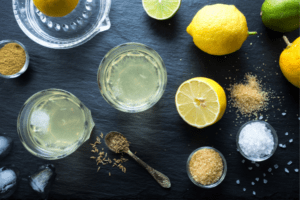
Electrolytes are essential minerals—such as sodium, potassium, magnesium, and calcium—that your body needs to perform critical functions. These include:
Regulating nerve and muscle function: Electrolytes transmit electrical signals that allow your muscles to contract and your nerves to communicate.
Balancing fluid levels: Sodium and potassium work together to ensure that water stays where it’s needed in your body.
Supporting cellular processes: Magnesium and calcium play roles in energy production and muscle contraction.
The Connection Between Electrolytes and Mounjaro
Mounjaro is often prescribed for managing Type 2 diabetes and supporting weight loss. While its effects are beneficial, its mechanisms can lead to subtle changes in your hydration and electrolyte needs. For example:
Reduced appetite and food intake: You might consume fewer foods rich in electrolytes.
Increased water consumption: Drinking more water, while essential, can dilute your body’s electrolyte levels if not balanced correctly.
Higher urination frequency: A common side effect of medications like Mounjaro, this can lead to depletion of sodium, potassium, and magnesium.
These factors make it vital to understand and address your hydration needs while on Mounjaro.
Top Natural Sources of Electrolytes
While sports drinks and electrolyte powders are widely marketed, they often contain artificial additives and unnecessary sugars. Instead, opt for natural sources that provide the right balance of nutrients. Here’s a closer look at some excellent options:
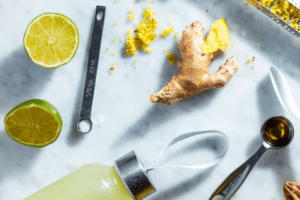
1. Coconut water: Nature’s hydration powerhouse
Coconut water is one of the best natural sources of potassium and magnesium. With a slightly sweet taste, it’s both refreshing and effective at replenishing electrolytes.
“Coconut water is like hitting the refresh button on your hydration levels,” says many nutritionists.
Best time to consume: Post-workout or after long periods without food to combat dehydration.
Pro tip: Choose 100% pure coconut water without added sugars.
2. Bone broth
Bone broth is not just comforting; it’s packed with sodium, magnesium, calcium, and collagen. This makes it a fantastic choice for addressing both electrolyte and nutrient deficiencies.
Key benefits: Helps with joint health, boosts skin elasticity, and provides an immune system boost.
When to consume: Perfect as a mid-day drink or in the evening to wind down.
3. Lemon water with a twist
A simple glass of lemon water with a pinch of sea salt and a drizzle of honey offers a quick, homemade electrolyte boost. The sea salt provides trace minerals, while honey adds natural sugars for energy.
Why it works: This combination hydrates while providing vitamin C, which supports your immune system.
How to prepare: Squeeze the juice of one lemon into a glass of water, add a pinch of high-quality sea salt, and stir in a teaspoon of honey.
4. Herbal teas with electrolyte benefits
Certain herbal teas, like ginger or peppermint tea, contain trace minerals and can soothe digestion. Add a slice of lemon or a splash of coconut water to enhance their electrolyte content.
5. O.R.S Hydration Tablets
O.R.S Hydration Tablets are scientifically formulated electrolyte supplements designed to help you stay hydrated. They dissolve easily in water and provide the perfect balance of sodium, potassium, glucose, and other key electrolytes.
Benefits of Using O.R.S Tablets
Quick Rehydration: They are clinically proven to rehydrate faster than plain water.
Portable and Easy to Use: Just drop one tablet into water, let it dissolve, and drink.
Balanced Formula: O.R.S tablets provide the precise mix of electrolytes your body needs to recover from dehydration.
Ideal for Mounjaro Users: If you’re experiencing symptoms of electrolyte depletion, these tablets can quickly restore balance.
Electrolyte-rich Foods to Incorporate Daily
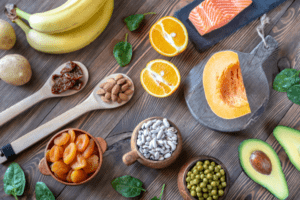
Beyond drinks, your diet is another critical source of electrolytes. Adding these foods to your meals can help maintain a healthy balance:
Bananas: Known for their high potassium content, bananas are perfect for preventing muscle cramps.
Avocados: A rich source of magnesium and potassium, they are a creamy, satisfying addition to salads or smoothies.
Leafy greens: Spinach, kale, and Swiss chard are loaded with calcium and magnesium, essential for bone and muscle health.
Yoghurt: High in calcium and contains probiotics that support gut health.
Nuts and seeds: Almonds, cashews, and pumpkin seeds provide a mix of magnesium, calcium, and zinc.
When and How to Stay Hydrated When Injecting Mounjaro?
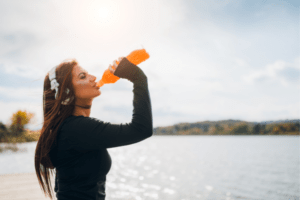
Timing your hydration is just as important as what you consume. Here are some tips to stay hydrated effectively:
1. Start your day right
Begin each morning with a glass of warm lemon water. This not only hydrates but also kick starts your metabolism and flushes out toxins.
2. Pre- and post-exercise hydration
Physical activity can lead to significant electrolyte loss through sweat. Before exercising, drink a glass of water enhanced with a pinch of salt and lemon juice. Afterwards, replenish with coconut water or bone broth.
3. Space out your hydration
Drinking large amounts of water at once can overwhelm your system. Instead, sip small amounts consistently throughout the day to maintain hydration levels.
4. Pay attention to climate
In hot weather or during periods of high activity, your body needs more fluids and electrolytes. Adjust your intake accordingly.
Common signs of Electrolyte imbalance
Your body often signals when it needs more electrolytes. Keep an eye out for these warning signs:
Fatigue and lack of energy: This could indicate low potassium or magnesium.
Muscle cramps or spasms: Often a sign of potassium or calcium deficiency.
Dizziness or light-headedness: This could be due to low sodium levels.
Dry mouth and excessive thirst: Indicators of dehydration.
If you notice persistent symptoms, it may be worth consulting a healthcare professional for personalised advice.
Practical tips to maintain Electrolyte balance
Plan your meals: Include at least one electrolyte-rich food or drink with each meal.
Listen to your body: Pay attention to signs of thirst and fatigue, especially during physical activity or hot weather.
Minimise processed foods: While some packaged foods are high in sodium, they often lack the other essential electrolytes your body needs.
Experiment with recipes: Try homemade electrolyte drinks, such as blending coconut water with a handful of fresh berries.
Takeaways
While staying hydrated on Mounjaro, it’s crucial to remember that water alone isn’t enough. Electrolytes play a vital role in keeping your body balanced and functioning optimally. By incorporating natural sources like coconut water, bone broth, and electrolyte-rich foods, you can prevent dehydration and maximise the benefits of your treatment.
So, next time you feel sluggish or notice muscle cramps, ask yourself: “Am I just drinking water, or am I replenishing my electrolytes too?” Stay hydrated, stay energised, and make the most of your journey on Mounjaro!
FAQs
- How to stay hydrated on Mounjaro?
Stay hydrated by drinking water consistently, incorporating natural electrolyte sources like coconut water or bone broth, and using O.R.S Hydration Tablets to maintain electrolyte balance.
- Should I drink electrolytes while on Mounjaro?
Yes, drinking electrolytes helps prevent dehydration, replenish minerals lost through reduced food intake, and support energy levels while on Mounjaro.
- Does Mounjaro cause excessive thirst?
Yes, Mounjaro can cause excessive thirst due to increased urination and changes in fluid balance. Staying hydrated and replenishing electrolytes can help manage this.
- What to drink when taking Mounjaro?
Drink water, coconut water, bone broth, or herbal teas. For a quick electrolyte boost, use O.R.S Hydration Tablets to stay hydrated.
- Is dehydration a side effect of Mounjaro?
Dehydration can occur due to nausea, reduced appetite, or frequent urination. Watch for symptoms like dry mouth or fatigue and increase fluid and electrolyte intake.
Medically reviewed by
Mohammed Lakhi
Superintendent Pharmacist











